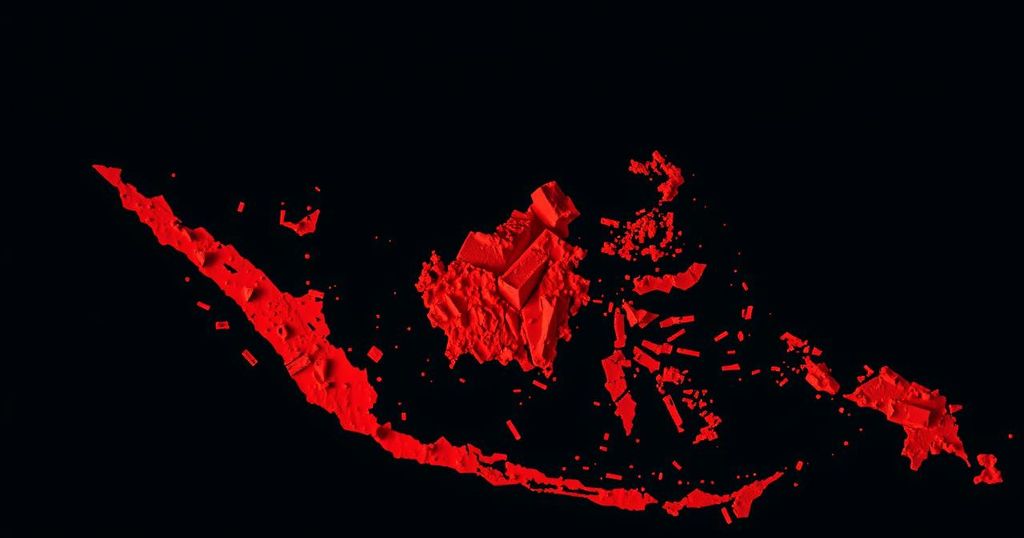Concerns Over Indonesia’s New Criminal Code and Its Impact on Civil Society
Indonesia’s new Criminal Code introduces restrictive measures against civil society, echoing past authoritarian practices. Key provisions criminalize dissent, particularly against the government, and impose harsh restrictions on public demonstrations, potentially endangering freedoms. Civil society has protested these changes, but the government continues to advance this legislation, prompting calls for international support to uphold human rights.
The recent enactment of Indonesia’s new Criminal Code raises significant concerns for civil society as articulated by Fatia Maulidiyanti, Executive Coordinator of KontraS. This code is perceived to reinstate repressive measures reminiscent of the Suharto regime, particularly through articles that criminalize criticism against high-ranking officials. Notably, articles 218 and 219 penalize defamation against the president and vice president, while article 240 imposes similar restrictions on state institutions. The resurgence of such laws is alarming given Indonesia’s already problematic policing and judicial systems, which often resort to corruption and arbitrary detention. Another troubling aspect of the code is the reintroduction of stringent permit requirements for public demonstrations, signaling a systematic clampdown on civic freedoms. The changes ostensibly stem from political negotiations that prioritize government control over civil liberties, notably without meaningful civil society consultation. Additionally, the code includes regressive provisions relating to morality, targeting private relationships and actions, potentially aligning with the government’s attempts to secure support from Islamic fundamentalist factions. Indonesian civil society has staunchly opposed these legislative changes, launching campaigns such as ReformasiDikorupsi since 2019. Despite protests and advocacy roles, their voices have been largely disregarded by the government, which continues to accelerate the criminal code’s implementation. Civil society urges the international community to exert pressure on the Indonesian government to reconsider these harmful policies and respect human rights.
The introduction of the new Criminal Code in Indonesia comes amid growing apprehension regarding civil liberties and human rights. Established in 1998, KontraS is pivotal in investigating enforced disappearances and advocating for human rights. Recent reforms, however, signal a resurgence of authoritarian tendencies and restrictions on freedoms, drawing parallels to Indonesia’s past under the Suharto regime. The potential implications of the code extend beyond individual rights, reflecting a broader trend towards the suppression of dissent and civil society activism in the context of upcoming electoral pressures.
The new Criminal Code poses a grave threat to civil society in Indonesia, stifling dissent and reestablishing authoritarian controls. With mechanisms to penalize criticism of government officials and increased regulations on public demonstrations, the law effectively marginalizes civic engagement. The international community’s support in advocating for human rights is crucial in challenging these regressive changes, highlighting the need for reassessment of governmental practices concerning civil liberties.
Original Source: www.civicus.org




Post Comment